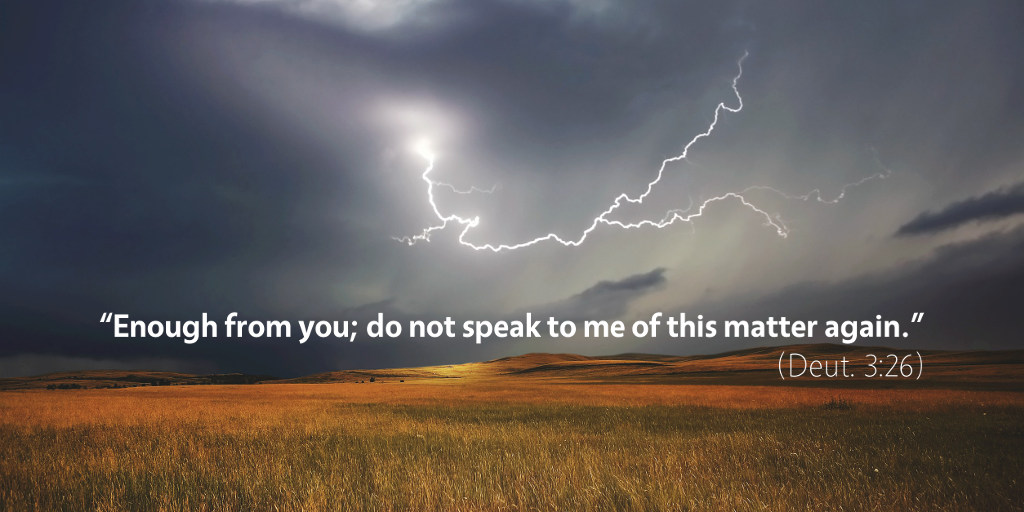Bible Readings for May 30th
Deuteronomy 3 | Psalm 85 | Isaiah 31 | Revelation 1
If it is tragic to read Moses’s prayer that Yahweh would grant him the right to enter into the Promised Land in Deuteronomy 3:23–25, then it is terrifying to read Yahweh’s flat refusal of Moses’s request: “But the LORD was angry with me because of you and would not listen to me. And the LORD said to me, Enough from you; do not speak to me of this matter again’” (Deut. 3:26). What are we to take from this passage to learn about how Yahweh responds to our own desperate prayers?
First, we should recognize that sin has consequences. Although God assures us of the perfect power of the cleansing blood of Jesus Christ to forgive us of our sins, sin can still destroy relationships or disqualify us from specific opportunities for ministry. In Moses’s failure, we should see a call to remain vigilant against the destructive lure of sin in our lives.
Second, we should not overlook the grace that Yahweh extends to Moses to see the Promised Land before he dies. In Deuteronomy 3:27, we read that Yahweh has graciously instructed Moses to look upon the Promised Land from the top of Pisgah. Although our heavenly Father may discipline us in the same way that all fathers discipline their children (Heb. 12:3–17), we should not overlook his grace toward us when we fail.
Third, we should remember that none of us is a mission-critical cog in God’s larger plan. Yahweh is not dependent upon even the great Moses to bring Israel into the Promised Land. Rather, Yahweh instructs Moses to prepare Israel for their next leader: “Charge Joshua, and encourage and strengthen him, for he shall go over at the head of this people, and he shall put them in possession of the land that you shall see” (Deut. 3:28). The call on our life is not to take center stage in God’s plan but to point to the glory of Jesus. He must increase, and we must decrease (John 3:30).
When we pray with the wrong assumptions, we would do well to remember Robert Law’s insight: “The marvellous and supernatural power of prayer consists, not in bringing God’s Will down to us, but in lifting our will up to His.”1 We can pray in faith, knowing that “if we ask anything according to his will he hears us. And if we know that he hears us in whatever we ask, we know that we have the requests that we have asked of him” (1 John 5:14–15). So, we ought to pray boldly and confidently—as the author of Hebrews instructs us, by lifting our drooping hands and strengthening our weak knees (Heb. 12:12)—but we must do so with the recognition that God is God, and we are not.
For what are you wrestling with God in prayer today?
1 Robert Law, The Tests of Life: A Study of the First Epistle of St. John, 2nd ed. (Edinburgh: T. & T. Clark, 1909), 301.
Podcast: Play in new window | Download (5.2MB) | Embed
Subscribe: Apple Podcasts | RSS | More

Scripture quotations are from The Holy Bible, English Standard Version copyright © 2001 by Crossway Bibles, a division of Good News Publishers. Used by permission. All rights reserved.


